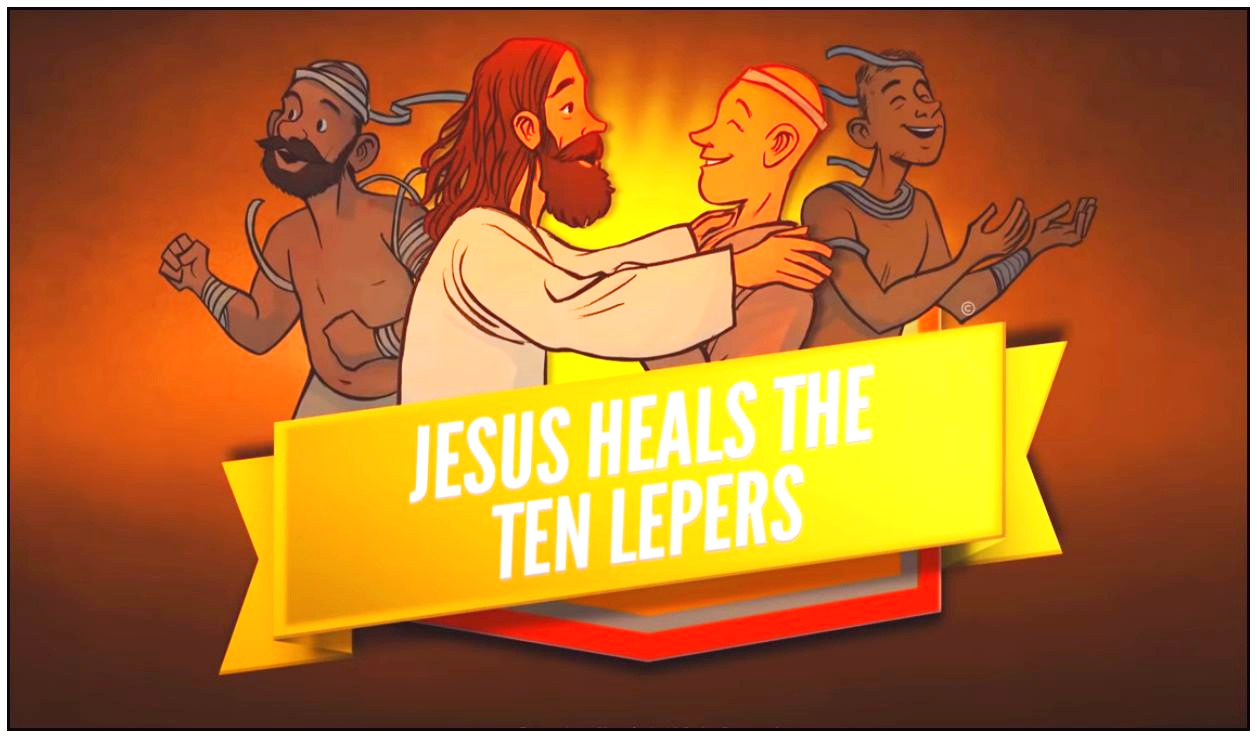Where are the 90 percent?
 "Liturgical" worship with ritual is neither good nor evil in itself: the container (ritual) must be worthy of its content (belief) – you don't use a throw-away paper cup to serve a fine wine! So ritual must be accompanied by sincere belief and heartfelt devotion. As I was writing this ARC-News, I happened to read the stories of The Ten Lepers and The Good Samaritan in Luke ch. 17. I searched for and found this article which appeared first in our "Hosken-News of 29 August 2020:
"Liturgical" worship with ritual is neither good nor evil in itself: the container (ritual) must be worthy of its content (belief) – you don't use a throw-away paper cup to serve a fine wine! So ritual must be accompanied by sincere belief and heartfelt devotion. As I was writing this ARC-News, I happened to read the stories of The Ten Lepers and The Good Samaritan in Luke ch. 17. I searched for and found this article which appeared first in our "Hosken-News of 29 August 2020:
In the name of the Father and the Son and the Holy Spirit! Glory to Jesus Christ! Glory forever!
Jesus asked the one leper out of the ten He cleansed – "Where are the other nine?" Only one of them was truly thankful... and he was a heretic. (BTW, this photo has a link to a really cool video for kids!) You know the story of the Ten Lepers in Luke 17:11-19 – Jesus and His disciples were "up north" in Israel, in Galilee which is right next to Samaria, the region that used to be the center of the ten tribes of Israel that the Lord allowed to be carried off into exile because of their idolatry. The lower-class, poor Jews who were left there had mixed with pagan peoples the Babylonians had resettled there. The result was a semi-Jewish, semi-pagan religious culture. The "true Jews" further south really despised those heretic Samaritans who had polluted the true Jewish faith with their pagan beliefs and practices.
But the fact that one of those ten was a Samaritan didn't bother Jesus: He healed all ten lepers of their awful disease and told them to present themselves to the priest for the ritual of cleansing. That ritual was like a certificate of approval that validated their cleansing and allowed them to get back into society again. So nine of them got on with their normal lives, but only one came back to Jesus to thank Him, and he was one of those despised, heretic Samaritans.
In doing this, Jesus no doubt rankled the Scribes and Pharisees, those sticklers for every detail of the rituals in the Law of Moses and the Mishnah – the legal appendices in their tradition. But what did the prophet Isaiah write about this? In Isaiah 1:13-23 the Lord says -
"Bring no more vain offerings. Incense is an abomination to Me; new moons, sabbaths, and convocations: I can't bear with evil assemblies. My soul hates your new moons and your appointed feasts; they are a burden to Me. I am weary of bearing them. When you spread forth your hands, I will hide My eyes from you; yes, when you make many prayers, I will not hear. Your hands are full of blood. Wash yourselves, make yourself clean. Put away the evil of your doings from before My eyes; cease to do evil. Learn to do well. Seek justice, relieve the oppressed, judge the fatherless, plead for the widow.
'Come now, and let us reason together,' says the Lord: 'Though your sins be as scarlet, they shall be as white as snow. Though they be red like crimson, they shall be as wool. If you are willing and obedient, you shall eat the good of the land; but if you refuse and rebel, you shall be devoured with the sword; for the mouth of the Lord has spoken it.' How the faithful city has become a prostitute! She was full of justice; righteousness lodged in her, but now murderers. Your silver has become dross, your wine mixed with water. Your princes are rebellious, and companions of thieves. Everyone loves bribes, and follows after rewards. They don't judge the fatherless, neither does the cause of the widow come to them."
The Jewish people had been observing their rituals, but without sincere and heartfelt repentance and turning from sin, those rituals became just an empty show, a stinking farce in the Lord's nostrils. Like the nine of the ten lepers, they performed the prescribed rituals but went back to their former "normal" lives of sinful, self-centered practices just like Isaiah described: sexual immorality, murder, greed for wealth, rebellion, thievery, bribery, and corruption of their justice system.
What's the solution to these evils? Repentance! – "Wash yourselves, make yourself clean. Put away the evil of your doings from before My eyes; cease to do evil. Learn to do well. Seek justice, relieve the oppressed, judge the fatherless, plead for the widow." Then, if they do this, the Lord says – "Though your sins be as scarlet, they shall be as white as snow. Though they be red like crimson, they shall be as wool. If you are willing and obedient, you shall eat the good of the land; but if you refuse and rebel, you shall be devoured with the sword; for the mouth of the Lord has spoken it." (Isaiah 1:16-18)

